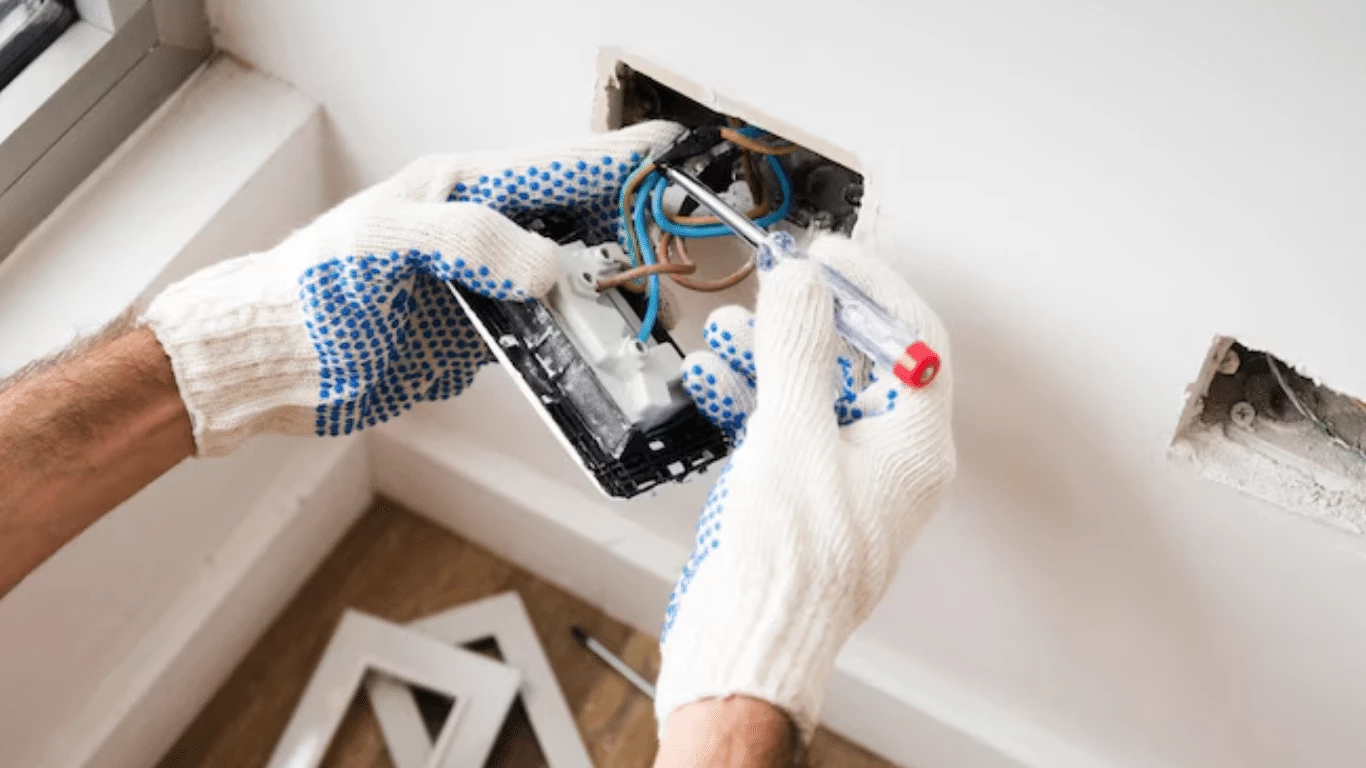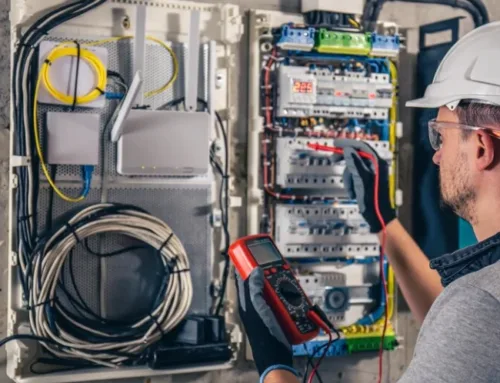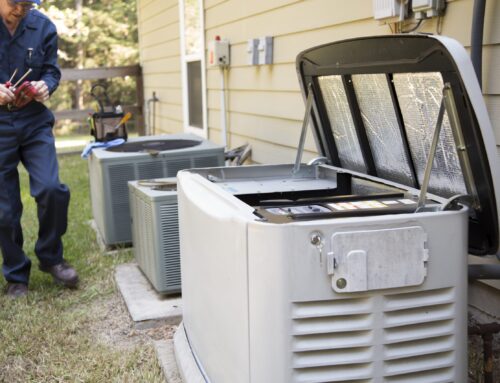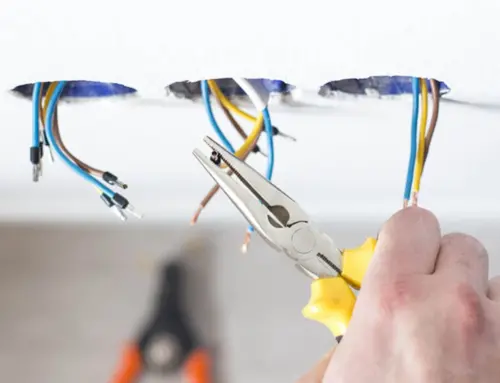If you’ve ever heard a strange buzzing sound coming from your walls or electrical outlets, you may have brushed it off as nothing more than a quirky background noise. But what if that buzzing sound is your home’s electrical wiring trying to tell you something? It’s easy to assume that electrical systems are working smoothly—after all, everything’s plugged in, and the lights are on. But those subtle buzzing noises can often be a sign of something more significant happening behind the scenes.
Let’s decode the mysterious language of electrical buzzing and understand why it might be more important than you think.
What Causes Electric Buzzing Sounds in Home Wiring?
Electric buzzing sounds are not random or harmless. They often indicate something going on in your home’s electrical system. Here are some of the most common reasons why your wiring might be making that irritating buzz:
- Loose Wiring or Connections: Over time, the wiring in your home can become loose due to wear and tear. This is a common cause of buzzing noises. Loose connections in outlets, light switches, or the breaker panel can create electrical arcing, which generates a buzzing sound. These connections may not only create noise but can also cause overheating, posing a potential fire risk.
- Overloaded Circuits: If an electrical circuit is overloaded, it may struggle to supply power to all the devices connected to it. This can cause an increase in electrical current, which can create vibrations in the wiring and cause buzzing sounds. Overloaded circuits can lead to power surges, tripped breakers, or even fire hazards if not addressed.
- Faulty Electrical Appliances: Sometimes, the buzzing noise may not be from the wiring itself but from an appliance or fixture. This is particularly common with older or malfunctioning appliances, such as refrigerators, air conditioners, or light fixtures. If the buzzing noise seems to come directly from an appliance rather than the wiring, it may be time to check or replace that specific appliance.
- Faulty Circuit Breakers: A buzzing sound near your breaker panel can indicate a problem with the circuit breaker itself. If the breaker is damaged or failing, it may not trip properly during a surge, causing it to overheat and produce a buzzing noise. This can be a serious safety concern if left unchecked.
- Dimmer Switches or Faulty Light Fixtures: If you hear buzzing sounds when certain lights are turned on or when using dimmer switches, the issue might lie in the switch or light fixture. Poorly wired dimmer switches or older light fixtures can cause fluctuations in the current, leading to a buzzing sound as electricity struggles to flow smoothly.
- Electrical Transformers: Some homes are equipped with transformers, especially in areas with outdoor lighting or older electrical systems. These transformers are necessary to step down voltage, but they can sometimes produce a low buzzing sound as part of their normal operation. However, if the buzzing sound becomes louder or more noticeable, it could signal a malfunction.
How Can You Tell If an Electric Buzzing Sound is a Sign of a Problem?
Now that we know what could be causing those buzzing sounds, it’s important to differentiate between harmless noise and a potential hazard. Here’s how to determine if the buzzing sound is a signal that something needs your attention:
- Location of the Noise: Pay attention to where the buzzing sound is coming from. If it’s coming from your breaker panel, outlets, or wiring in the walls, it’s more likely that there’s a significant issue with the electrical system. Buzzing from a specific appliance might indicate that the appliance is the source of the noise and needs inspection.
- Volume and Frequency: A faint buzzing sound may not be cause for alarm. However, if the buzzing is loud, constant, or seems to increase over time, it could be a sign of a more serious problem. Persistent or growing buzzing sounds often point to wiring issues, overloaded circuits, or electrical components that are under strain or failing.
- Fluctuating Lights or Power Loss: If you notice that the buzzing sound is accompanied by flickering lights, dimming, or complete power loss in specific areas of your home, this is a clear sign that there’s a wiring issue, overloaded circuit, or faulty electrical connection. These types of issues require immediate attention.
- Burning Smell or Hot Components: If the buzzing noise is accompanied by a burning smell or if components near the buzzing sound (such as outlets, switches, or breakers) feel hot to the touch, this is an emergency situation. These are serious red flags indicating that the wiring or electrical components are overheating and may pose a fire risk.
- Power Surges: If you notice power surges or if the buzzing sound coincides with appliances malfunctioning or turning off and on unexpectedly, this could be an indicator of an electrical fault or overloading in your system.
When Should You Call an Electrician For a Buzzing Noise in Your Home?
If you’re hearing electrical buzzing sounds, it’s important to know when to pick up the phone and call a professional. Ignoring the issue can lead to bigger problems, including potential electrical fires or system failures. Here’s when you should definitely call an electrician:
- Constant or Loud Buzzing: If the buzzing sound is persistent or becomes louder over time, it’s not something you should ignore. A louder buzz is usually a sign that there’s a problem with the electrical components or wiring. A qualified electrician will be able to identify the issue and correct it before it causes more serious damage.
- Buzzing Near the Breaker Panel or Outlet: If the buzzing noise is coming from the breaker panel, outlets, or light switches, you should call an electrician immediately. These areas contain live electrical current, and any problem with them—whether it’s a loose connection, faulty breaker, or overloaded circuit—can be dangerous. A professional will inspect the area and ensure everything is up to code and operating safely.
- Intermittent Power or Flickering Lights: If the buzzing sound occurs in conjunction with power surges or flickering lights, you should contact an electrician as soon as possible. These issues often stem from a larger electrical problem, such as a malfunctioning breaker or overloaded circuit, that requires professional diagnosis and repair.
- Burning Smell or Overheating Components: If you smell burning or notice that your electrical components (such as outlets, switches, or light fixtures) are hot to the touch, call an electrician immediately. This is a serious fire risk, and it’s critical to get professional help right away to prevent further damage or danger.
- Unusual Appliance Buzzing: If an appliance or light fixture is the source of the buzzing sound and it doesn’t resolve after turning the appliance off or replacing bulbs, you should reach out to an electrician. Sometimes malfunctioning appliances or faulty fixtures can overload circuits, creating a fire risk.
Can Electric Buzzing Sounds Be Dangerous If Ignored?
Yes, electric buzzing sounds can definitely be dangerous if ignored. Here’s why:
- Fire Hazard: One of the biggest dangers of a buzzing electrical system is the potential for fire. Loose connections, overloaded circuits, and overheating components can all lead to sparks, arcing, or melting wires, which significantly increases the risk of an electrical fire. Ignoring these warning signs could result in devastating damage to your home or business.
- Electric Shock: Buzzing sounds can also signal that there is an issue with exposed or faulty wiring. If left unchecked, this could put anyone in your household at risk of electrical shock, especially if they come into contact with improperly grounded outlets or damaged wiring.
- Expensive Repairs: If buzzing sounds are ignored for too long, the underlying problem can worsen, leading to more extensive damage. This can result in costly repairs or even the need for a full electrical system replacement. Fixing the problem early on can save you both time and money.
- Appliance Damage: If the buzzing sound is related to a malfunctioning appliance or circuit, it could damage your other electrical appliances. A faulty appliance might draw too much power, causing surges that could destroy other devices plugged into the same circuit. Addressing the issue quickly can help prevent further damage.
Listen to What Your Home’s Wiring is Telling You
Those buzzing sounds in your home’s electrical system shouldn’t be dismissed as simple background noise. They’re often a signal that something is wrong and could be a sign of a potentially dangerous issue. While some buzzing sounds may be harmless, it’s always better to err on the side of caution and have your electrical system checked by a professional.
If you hear buzzing sounds in your home, pay attention to the location, frequency, and any accompanying signs like power surges or flickering lights. When in doubt, call a qualified electrician to inspect and repair the problem before it escalates into a serious hazard. Your home’s electrical system is crucial to your safety, and taking the time to address these warning signs could save you from costly and dangerous problems down the line.
Don’t Wait for a Spark: Contact Starnes Electric LLC for Professional Electrical Inspections Today!
If your home is buzzing with strange electrical sounds, it’s time to take action. Starnes Electric LLC is here to help you ensure your electrical system is running safely and efficiently. Our experienced electricians are ready to diagnose and resolve any issues, from loose wiring to overloaded circuits, before they become a bigger problem.
Don’t ignore the signs—whether it’s buzzing, flickering lights, or overheating components. Our team will perform a thorough inspection, provide professional repairs, and offer solutions that keep your home safe.
Reach out to Starnes Electric LLC today to schedule your electrical inspection and prevent potential hazards. Let us help you keep your home’s electrical system safe and secure.





